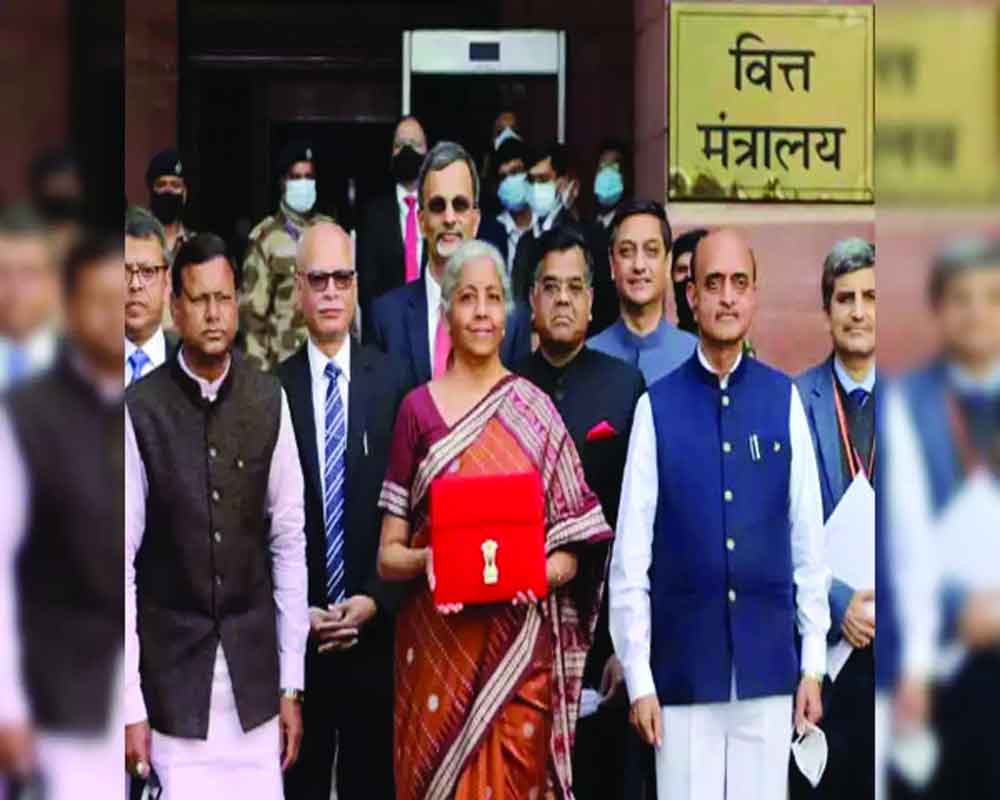The Finance Minister has not only demonstrated fiscal restraint and prudence in the election year but also balanced the Interim Budget in favour of common man
Although an interim budget was presented in the Parliament on February 1, 2024, with only a few months left for the upcoming general elections, general expectation was there about some populist announcements could be made in this budget. But the finance minister has not only shown fiscal restraint but showed prudence.
In the last budget, the fiscal deficit was estimated to be 5.9 per cent of gross domestic product (GDP). Some analysts believed that since nominal GDP would be low this year, the fiscal deficit could be higher than estimated. However, the revised estimate of fiscal deficit shows the same to be only 5.8 per cent of GDP. This indicates that the government has tried to keep the deficit low by exercising fiscal prudence. The reason for this is that the government is getting sufficient revenue. Due to the intensified economic activities in the country, there has been an unprecedented increase in collections from Goods and Services Tax (GST), Personal Income Tax, Corporate Income Tax etc.The government had estimated that the revenue growth would be 10.7 per cent, but this growth rate has been nearly 15 per cent. Due to booming revenue, despite the increase in expenditure, the fiscal deficit has remained low. For the next financial year, the government estimates that this deficit will be only 5.1 per cent.
The opposition alleged that the government has been increasing the debt burden, but in the interim budget, the gross and net borrowings have been kept at Rs 14.1 lakh crore and Rs 11.74 lakh crore only. This means that next year the government will borrow less than the current year. In view of the fact that the government keeps borrowing more and more, year after year, it is unprecedented that it is going to be less next year. It’s notable that since 2020-21, when the central government’s debt-GDP ratio climbed to 61 per cent due to Covid19 COVID-19 crisis, this ratio has been constantly declining and is likely to reach 56 per cent in 2024-25. It is noteworthy, that reduction in fiscal deficit also reduces the risk of inflation. Its effect may be that rating agencies are likely to improve India’s rating; and therefore, investors will be attracted more to India. In general, from the point of view of fiscal management and management of the economy, no one, not even the opposition, can say that this is a populist budget.
We have been able to take our economy out of the five most fragile economies of the world in 2014, to the fifth largest economy of the world, striving to be the third largest economy in the next three years. The credit also goes to this government for bringing the economy, out of the negative GDP growth of 2020-21 and bringing it to the world's fastest-growing large economy of the world. India’s progress is seen in all dimensions of the economy- technology, industry, agriculture and service sector. Capital expenditure has consistently been increasing in the last 4 years and in 2024-25 also it will continue this time a provision has been made to spend Rs 11.11 lakh crore, up 11.1 per cent compared to the current year. Public welfare schemes like Pradhan Mantri Awas Yojana, Ujjwala Yojana and many other schemes were implemented. This has been taken forward in this interim budget also. Construction of 2 crore additional rural houses; The program to make 2 crore more women Lakhpati Didi, work has been done to take forward the programs already running. In addition program has also been launched to provide free electricity to one crore people through rooftop solar.The budget proposes an 11.1 per cent increase In capital expenditure, through which roads, rail and other types of infrastructure will be built. It can be said that while demonstrating the spirit of the interim budget, the finance minister has presented a document that reflects fiscal restraint and takes forward the welfare schemes.
(The writer is a professor at PGDAV College, University of Delhi, views are personal)


























